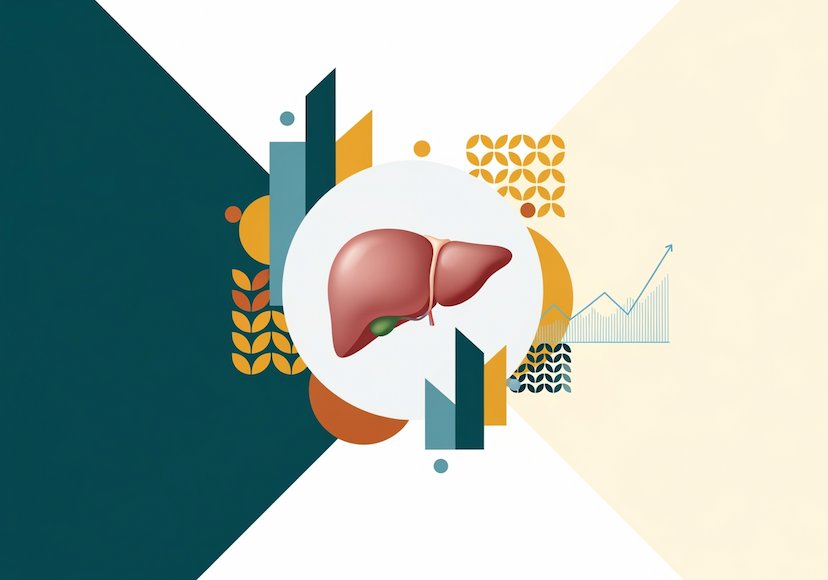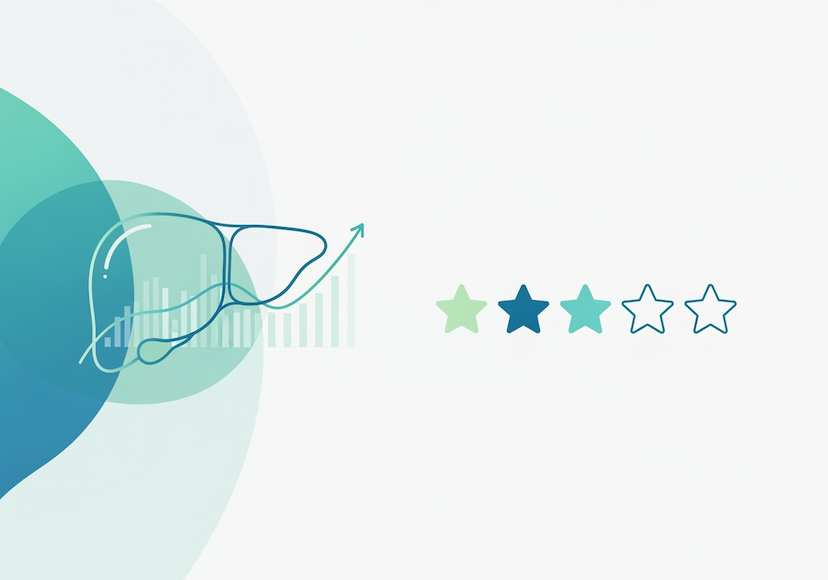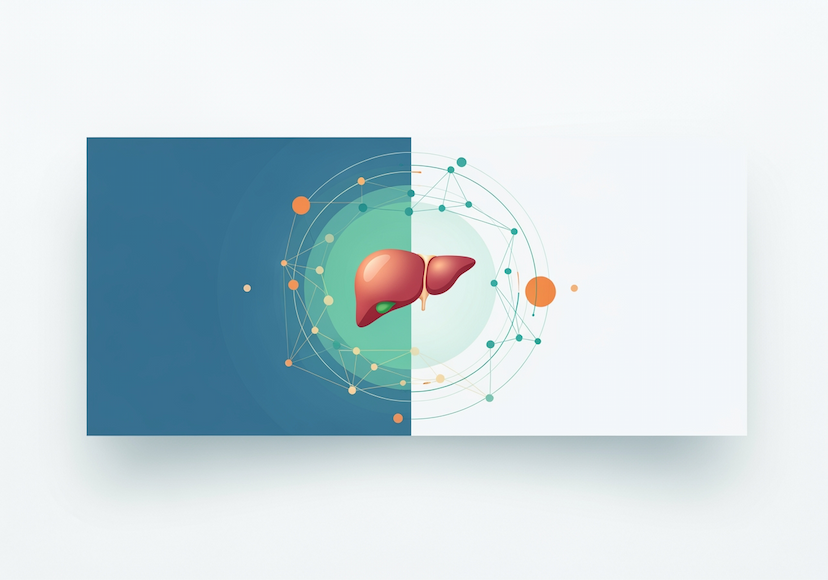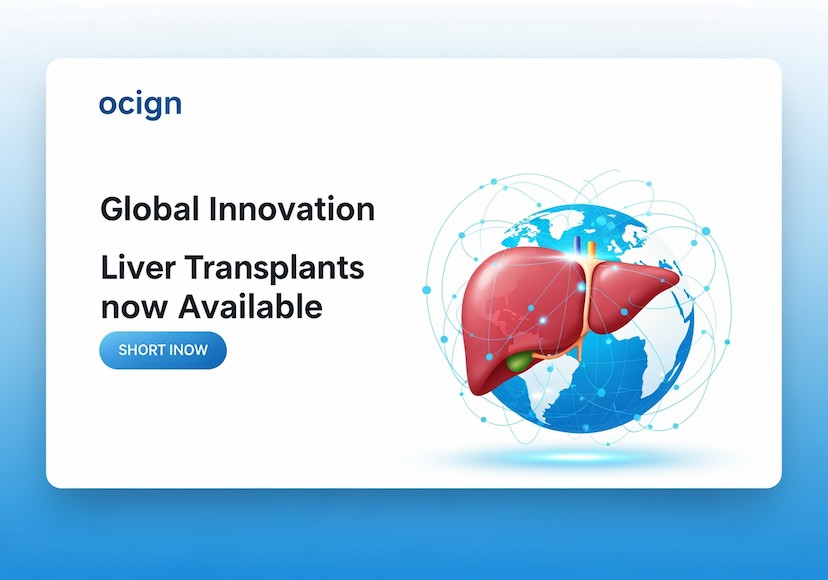
Common Myths About Kidney Transplant Doctors Bust Them
15 Nov, 2025
 Healthtrip
Healthtrip- Myth: Kidney Transplants Are Only for the Elderly – Doctors Debunk Age Limits
- Myth: You Can't Live a Normal Life After a Transplant – Exploring Post-Transplant Well-being at Memorial Sisli Hospital
- Myth: Finding a Matching Donor is Impossible – Understanding the Donor Process with NMC Specialty Hospital, Abu Dhabi
- Myth: Kidney Transplants Are a Cure – The Reality of Long-Term Management at Fortis Hospital, Noida
- Myth: Only Blood Relatives Can Donate Kidneys – Expanding the Donor Pool with Yanhee International Hospital
- Myth: Post-Transplant Medication is Optional – The Importance of Immunosuppressants at Vejthani Hospital
- Myth: Kidney Transplant is the Last Resort – Exploring Early Intervention at Saudi German Hospital Cairo, Egypt
- Conclusion: Empowering Patients with Facts About Kidney Transplants
Myth 1: Kidney Transplants Cure Kidney Disease
It's a common misconception that a kidney transplant completely eradicates kidney disease. While a transplant can dramatically improve your health and quality of life, it's essential to understand that it's more of a management strategy than a complete cure. The underlying condition that led to kidney failure in the first place might still be present, requiring ongoing management. After a successful kidney transplant at facilities like Fortis Memorial Research Institute, Gurgaon, or even a consultation facilitated by Healthtrip at Memorial Sisli Hospital, patients need to adhere to a strict regimen of immunosuppressant medications. These drugs prevent the body from rejecting the new kidney, but they also come with potential side effects, necessitating careful monitoring and adjustments by medical professionals. It's like trading one set of challenges for another, but with the significant benefit of improved kidney function and overall well-being. Think of it as upgrading to a newer model – it might need different maintenance, but the performance is significantly enhanced. Healthtrip aims to make this transition smoother, connecting you with nephrologists who can provide personalized post-transplant care to ensure long-term success.
Most popular procedures in India
Myth 2: You Can Only Get a Kidney From a Deceased Donor
This is a widespread myth that limits the perceived options for those awaiting a kidney transplant. While deceased donor kidneys are a vital source, living donor transplants are becoming increasingly common and offer several advantages. A kidney from a living donor often functions better and lasts longer than one from a deceased donor. Plus, the surgery can be scheduled at an optimal time for both the donor and recipient, allowing for better preparation and reduced waiting time. Consider facilities like Singapore General Hospital or even exploring options facilitated by Healthtrip at the NMC Specialty Hospital, Abu Dhabi, where living donor transplants are performed with high success rates. The process involves a thorough evaluation of both the donor and recipient to ensure compatibility and minimize risks. It's a testament to the power of human connection and generosity, where someone can directly contribute to improving another's life. Healthtrip provides resources to help families navigate the emotional and logistical aspects of living donor transplants, from finding potential donors to coordinating medical evaluations and travel arrangements.
Myth 3: The Waiting List is the Only Way to Get a Kidney
While the national waiting list is a crucial pathway to receiving a kidney transplant, it's not the only avenue to explore. The waiting list can indeed be lengthy, often spanning several years, depending on blood type, tissue match, and other factors. However, actively exploring other options can significantly increase your chances of receiving a transplant sooner. One such option is seeking a living donor, as mentioned earlier. Another approach is participating in paired kidney donation programs, where incompatible donor-recipient pairs are matched with other pairs to facilitate kidney exchanges. This can create a domino effect, leading to multiple successful transplants. Hospitals like Quironsalud Hospital Murcia may offer such programs. Furthermore, Healthtrip can assist in identifying transplant centers with shorter waiting times, both domestically and internationally. For example, you might consider exploring options at Yanhee International Hospital in Thailand. Actively researching different transplant centers and understanding their specific criteria can empower you to navigate the system more effectively. Remember, being proactive and informed can make a significant difference in your journey to better health.
Wellness Treatments
Give yourself the time to relax
Lowest Prices Guaranteed!

Lowest Prices Guaranteed!
Myth 4: You Have to Be Young to Get a Kidney Transplant
Age is just a number, and it certainly shouldn't be an automatic barrier to receiving a kidney transplant. While younger patients generally have better long-term outcomes, older adults can also benefit significantly from a transplant, experiencing improved quality of life and increased longevity compared to remaining on dialysis. The decision to proceed with a transplant is based on a comprehensive evaluation of overall health, not just chronological age. Factors such as cardiovascular health, cognitive function, and the presence of other medical conditions are carefully considered. Transplant centers, including those offered by Healthtrip like LIV Hospital, Istanbul, are increasingly recognizing the potential benefits of transplants for older adults who are otherwise healthy. A transplant can restore energy levels, improve cognitive function, and allow older individuals to live more independently and enjoy their golden years to the fullest. It's a matter of weighing the risks and benefits on an individual basis, ensuring that the potential for improved quality of life outweighs the potential complications. Healthtrip can connect you with geriatric nephrologists who specialize in evaluating older patients for transplant suitability and providing tailored care.
Myth 5: Your Body Will Inevitably Reject the New Kidney
The fear of rejection is a significant concern for many kidney transplant recipients, but the reality is that rejection is not inevitable. With advancements in immunosuppressant medications and sophisticated monitoring techniques, the risk of rejection has significantly decreased over the years. While rejection can still occur, it is often manageable, especially when detected early. Regular check-ups and adherence to the prescribed medication regimen are crucial for preventing and detecting rejection episodes. Should rejection occur, medical professionals at facilities like the Jiménez Díaz Foundation University Hospital can adjust the immunosuppressant medications to control the rejection and protect the new kidney. It's a collaborative effort between the patient and the medical team to ensure the long-term success of the transplant. Healthtrip emphasizes the importance of choosing a transplant center with experienced immunologists and a robust rejection management protocol. By providing access to high-quality care and ongoing support, Healthtrip helps patients minimize the risk of rejection and maximize the chances of a healthy and fulfilling life after transplant. < p>
Myth: Kidney Transplants Are Only for the Elderly – Doctors Debunk Age Limits
The misconception that kidney transplants are exclusively for older individuals is a pervasive myth that needs immediate debunking. Age, in itself, is not the primary determining factor for kidney transplant eligibility. Instead, medical professionals meticulously evaluate a patient's overall health, physiological age, and ability to withstand the rigors of surgery and post-transplant immunosuppression. While it's true that older patients may face increased risks due to pre-existing conditions, many remain excellent candidates for transplantation. Conversely, younger patients with significant comorbidities might not be suitable. The decision-making process is highly individualized, focusing on optimizing patient outcomes and ensuring the long-term success of the transplant. Healthtrip understands that navigating the complexities of transplant eligibility can be overwhelming. We connect patients with leading transplant centers worldwide, such as Saudi German Hospital Alexandria, Egypt and Saudi German Hospital Cairo, Egypt where experienced doctors conduct thorough evaluations to determine the best course of action, regardless of age. It's about living longer and better, not just about age.
Myth: You Can't Live a Normal Life After a Transplant – Exploring Post-Transplant Well-being at Memorial Sisli Hospital
The notion that a "normal life" is unattainable post-kidney transplant is a significant deterrent for many potential recipients, and it's a myth we're eager to shatter. While it's true that life after a transplant involves ongoing medical management, including immunosuppressant medications and regular check-ups, the vast majority of transplant recipients experience a remarkable improvement in their quality of life. Individuals can return to work, pursue hobbies, travel, and enjoy meaningful relationships. In fact, many transplant recipients report feeling healthier and more energetic than they have in years, liberated from the constraints of dialysis and the debilitating symptoms of kidney failure. Memorial Sisli Hospital, Istanbul recognized for their comprehensive post-transplant care programs, which focus not only on physical health but also on psychological and emotional well-being, plays a pivotal role in ensuring a smooth transition back to everyday life. Through Healthtrip, patients can access world-class transplant centers and expert guidance to navigate the post-transplant journey with confidence and optimism. We believe in empowering patients to reclaim their lives and embrace a future filled with possibilities. It's about thriving, not just surviving.
Myth: Finding a Matching Donor is Impossible – Understanding the Donor Process with NMC Specialty Hospital, Abu Dhabi
The perceived impossibility of finding a compatible kidney donor is a common source of anxiety and discouragement for individuals with end-stage renal disease. While it is true that finding a perfect match can be challenging, the odds are far from insurmountable. Advances in tissue typing, crossmatching techniques, and expanded donor programs have significantly increased the likelihood of finding a suitable donor. Furthermore, living donor transplantation, where a healthy individual donates a kidney to a recipient, has become increasingly prevalent and successful. NMC Specialty Hospital, Abu Dhabi emphasizes the importance of understanding the donor process and actively participating in the search for a compatible match. Healthtrip facilitates access to a global network of transplant centers and donor registries, connecting patients with potential donors and streamlining the evaluation process. With increased awareness, education, and proactive engagement, finding a matching donor becomes a more attainable goal. Furthermore, deceased donor lists are constantly updated, offering another avenue for finding a life-saving match. It's about hope and possibility, not despair. We at Healthtrip are committed to helping you navigate this journey and find the match that can restore your health and well-being.
Also Read:
Myth: Kidney Transplants Are a Cure – The Reality of Long-Term Management at Fortis Hospital, Noida
The misconception that a kidney transplant is a definitive cure often leads to unrealistic expectations and potential disappointment. It's essential to understand that a kidney transplant, while dramatically improving quality of life and extending lifespan, is actually a very effective *treatment* for end-stage renal disease, not a cure. Think of it like managing diabetes or hypertension – these are conditions that require ongoing care, and the same is true for a transplanted kidney. The new kidney isn't a magical fix that erases the past; it's a new chapter that demands diligent management to ensure its longevity and proper function. Fortis Hospital, Noida, emphasizes this aspect heavily, ensuring patients are thoroughly educated about the long-term commitment needed for successful outcomes. They stress that patient adherence to medication regimens and follow-up appointments are critical for the long-term health of the transplanted kidney. A successful transplant is definitely a new lease on life, but it needs you to be an active participant in maintaining it.
The Importance of Immunosuppressants
One of the most pivotal aspects of long-term management revolves around immunosuppressant medications. These drugs are vital to prevent the recipient’s immune system from attacking the newly transplanted kidney, recognizing it as foreign and trying to reject it. Taking immunosuppressants isn't just a temporary measure; it's a lifelong commitment. These medications come with their own set of potential side effects, ranging from increased susceptibility to infections to potential effects on other organs. Therefore, regular monitoring and adjustment of medication dosages are crucial. Doctors at Fortis Hospital, Noida, meticulously tailor immunosuppressant regimens for each patient, aiming to strike a delicate balance between preventing rejection and minimizing side effects. Patients must understand that skipping doses or altering the medication schedule without consulting their transplant team can have serious consequences, potentially leading to rejection and graft failure. This isn't a "set it and forget it" scenario; it requires constant vigilance and communication with your healthcare providers to navigate potential challenges and ensure the kidney remains healthy and functioning optimally.
Lifestyle Adjustments and Monitoring
Beyond medication, various lifestyle adjustments contribute significantly to the long-term success of a kidney transplant. Maintaining a healthy weight, following a balanced diet, and engaging in regular exercise are crucial for overall well-being and kidney function. Avoiding smoking and excessive alcohol consumption is also paramount as these habits can negatively impact kidney health and increase the risk of complications. Routine check-ups and monitoring of kidney function are essential to detect any early signs of rejection or other problems. Fortis Hospital, Noida, implements a comprehensive follow-up program, including regular blood tests, urine tests, and imaging studies, to monitor the health of the transplanted kidney. Early detection of potential issues allows for timely intervention and adjustments to the treatment plan, maximizing the chances of long-term success. The transplant team at Fortis strongly believes that the patient becoming an active partner in their care is extremely valuable in keeping the new kidney in good condition and extending its function to the maximum possible years/time. Ultimately, a kidney transplant is a triumph of medical science, but its long-term success depends on a collaborative effort between the patient and their healthcare team, fueled by knowledge, diligence, and a commitment to long-term management.
Also Read:
Myth: Only Blood Relatives Can Donate Kidneys – Expanding the Donor Pool with Yanhee International Hospital
The belief that only blood relatives can donate kidneys is a persistent myth that significantly limits the potential donor pool and deprives countless individuals of life-saving transplants. Fortunately, modern medicine has expanded the possibilities far beyond this narrow constraint. While blood relatives are often ideal donors due to genetic compatibility and potentially lower rejection risks, advancements in immunosuppression and donor matching techniques have opened the door for unrelated donors, including spouses, friends, and even altruistic strangers. Yanhee International Hospital in Thailand actively promotes awareness about the expanded donor pool, emphasizing that a compatible match, regardless of genetic relation, is the most critical factor. They work diligently to evaluate potential donors, ensuring they meet stringent health criteria and undergo thorough compatibility testing. The hospital's commitment to expanding the donor pool reflects a global effort to address the organ shortage and provide more individuals with the opportunity to receive a life-saving transplant.
The Role of Compatibility Testing
Compatibility testing is the cornerstone of successful unrelated kidney transplantation. This involves assessing the compatibility of blood types, human leukocyte antigens (HLAs), and antibodies between the donor and recipient. HLA are proteins found on the surface of cells that play a crucial role in the immune system's ability to distinguish between self and non-self. The closer the HLA match, the lower the risk of rejection. Crossmatching, a test to detect pre-existing antibodies in the recipient's blood that could attack the donor's kidney, is also essential. Yanhee International Hospital utilizes advanced laboratory techniques to meticulously assess compatibility, minimizing the risk of rejection and improving the chances of long-term graft survival. They carefully evaluate potential donors and recipients, considering various factors beyond blood type and HLA matching to optimize the selection process. The emphasis on comprehensive compatibility testing underscores the fact that a compatible unrelated donor can often be just as successful as a related donor, offering hope to those who lack suitable family members for donation.
Altruistic Donors and Paired Exchange Programs
Altruistic donors, individuals who selflessly donate a kidney to a stranger, are a vital source of organs and can significantly reduce waiting times for transplant recipients. Paired exchange programs, also known as kidney swaps, further expand the donor pool by matching incompatible donor-recipient pairs with other incompatible pairs. For example, if a husband wants to donate to his wife but they are incompatible, they can be matched with another couple in a similar situation, allowing both wives to receive a compatible kidney. Yanhee International Hospital actively participates in and promotes paired exchange programs, recognizing their potential to increase the number of transplants performed and save lives. These programs require careful coordination and logistics, but they offer a remarkable opportunity to overcome compatibility barriers and provide hope to individuals who might otherwise remain on the waiting list indefinitely. The expansion of donor options, driven by advancements in medical science and a growing awareness of the importance of organ donation, is transforming the landscape of kidney transplantation, offering a brighter future for patients in need.
Also Read:
Myth: Post-Transplant Medication is Optional – The Importance of Immunosuppressants at Vejthani Hospital
The idea that post-transplant medication is optional is perhaps one of the most dangerous misconceptions surrounding kidney transplants. To be crystal clear: immunosuppressant medications are *not* optional; they are absolutely essential for preventing the recipient’s immune system from rejecting the transplanted kidney. Vejthani Hospital in Thailand places paramount importance on educating patients about the critical role of these medications and the potentially devastating consequences of non-adherence. They employ a multi-faceted approach, involving transplant surgeons, nephrologists, pharmacists, and nurses, to ensure patients fully understand the medication regimen, potential side effects, and the importance of consistent adherence. Thinking you can skip or stop these medications without consulting your transplant team is like thinking you can remove the foundation from a building and expect it to stand – it's a recipe for disaster. The immune system, naturally designed to protect you from foreign invaders, will recognize the transplanted kidney as "non-self" and launch an attack, potentially leading to rejection and graft failure.
Understanding Immunosuppressant Medications
Immunosuppressant medications work by suppressing the immune system's response, preventing it from attacking the transplanted kidney. These medications are typically taken for the *lifetime* of the transplanted kidney. There are various types of immunosuppressants, and the specific combination and dosage are tailored to each patient's individual needs and risk factors. Common immunosuppressants include calcineurin inhibitors (such as tacrolimus and cyclosporine), mTOR inhibitors (such as sirolimus and everolimus), antimetabolites (such as mycophenolate mofetil and azathioprine), and corticosteroids (such as prednisone). Vejthani Hospital emphasizes the importance of understanding the specific medications prescribed, their potential side effects, and how to manage them. They provide detailed information about each medication, including potential drug interactions and lifestyle adjustments that may be necessary. The hospital's pharmacists play a critical role in counseling patients about their medications, answering questions, and addressing any concerns they may have. With consistent medication, the body can accept the kidney for years and function as intended.
Consequences of Non-Adherence
Non-adherence to immunosuppressant medications is a major cause of kidney transplant rejection and graft failure. Skipping doses, taking medications at the wrong time, or altering the dosage without consulting the transplant team can significantly increase the risk of rejection. Rejection can occur acutely, within the first few weeks or months after transplantation, or chronically, over a period of years. Acute rejection can often be treated with increased immunosuppression, but chronic rejection is often irreversible and can lead to graft failure, requiring the patient to return to dialysis and wait for another transplant. Vejthani Hospital employs various strategies to promote medication adherence, including providing patients with medication reminders, offering support groups, and involving family members in the education process. They also emphasize the importance of open communication between patients and their transplant team, encouraging patients to report any side effects or concerns they may have. By proactively addressing potential barriers to adherence, Vejthani Hospital strives to ensure that patients receive the medications they need to protect their transplanted kidneys and maintain their health.
Also Read:
Myth: Kidney Transplant is the Last Resort – Exploring Early Intervention at Saudi German Hospital Cairo, Egypt
The pervasive notion that a kidney transplant is only a "last resort" treatment option can be incredibly detrimental, delaying potentially life-changing intervention for many patients. In reality, a kidney transplant should be considered as a viable treatment option *well before* dialysis becomes the only remaining choice. Delaying the transplant evaluation process can lead to a decline in overall health, making patients less suitable candidates for surgery and potentially increasing the risk of complications. Saudi German Hospital Cairo, Egypt, advocates for early intervention, emphasizing that a proactive approach to kidney disease management, including timely transplant evaluation, can significantly improve patient outcomes and quality of life. They encourage nephrologists to refer patients with chronic kidney disease (CKD) for transplant evaluation early in the disease course, allowing ample time for comprehensive assessment, donor matching, and pre-transplant optimization. Starting the evaluation process early is key to preparing for transplant without waiting until end-stage renal disease becomes critical.
Benefits of Early Transplant Evaluation
Early transplant evaluation offers numerous benefits. It allows the transplant team to thoroughly assess the patient's overall health, identify any potential risk factors, and develop a personalized treatment plan. It provides ample time for donor matching, increasing the chances of finding a compatible donor and reducing waiting times. It also allows patients to optimize their health prior to transplantation, improving their chances of a successful outcome. Saudi German Hospital Cairo carefully manages patients with chronic kidney disease, closely monitoring kidney function, managing blood pressure and diabetes, and recommending certain lifestyle changes. Patients involved in this type of program are able to defer dialysis for longer, which is associated with better overall health and longer survival after transplant. Early evaluation allows patients to actively participate in their care and make informed decisions about their treatment options.
Preemptive Transplantation: A Proactive Approach
Preemptive transplantation, which involves receiving a kidney transplant *before* the need for dialysis arises, is an increasingly recognized and beneficial approach for suitable candidates. Preemptive transplantation avoids the complications associated with dialysis, improves quality of life, and is associated with better long-term outcomes. Patients who receive a preemptive transplant often experience better graft survival rates and reduced mortality compared to those who undergo dialysis before transplantation. Saudi German Hospital Cairo educates patients about the benefits of preemptive transplantation and encourages them to consider this option if they meet the eligibility criteria. This proactive approach requires close collaboration between nephrologists, transplant surgeons, and patients, ensuring that transplantation is considered as an integral part of the overall kidney disease management plan, not just a desperate last resort. Ultimately, shifting the mindset from transplantation as a "last resort" to a proactive, early intervention strategy can empower patients to take control of their health and improve their chances of a long and fulfilling life.
Also Read:
Conclusion: Empowering Patients with Facts About Kidney Transplants
Navigating the world of kidney transplants can feel like wading through a sea of misinformation, but arming yourself with accurate facts is the first step towards making informed decisions about your health. By debunking common myths and shedding light on the realities of transplantation, we hope to empower patients and their families to approach this complex process with confidence and optimism. Remember, kidney transplants are not just a last resort; they're a viable treatment option that can dramatically improve quality of life and extend lifespan when considered and managed proactively. From dispelling age-related misconceptions to expanding the donor pool and emphasizing the importance of long-term management, understanding the truth about kidney transplants is essential for successful outcomes. Through comprehensive education and access to reliable information, Healthtrip aims to bridge the gap between myth and reality, providing patients with the knowledge they need to navigate their journey towards a healthier future. Always consult with your healthcare provider for personalized medical advice.
Related Blogs

Top Pre-Surgery Tests Required for Liver Transplant
Explore evaluations, innovations, hospital comparisons, and global success insights for

Why India Leads in Affordable Liver Transplant Analysis
Explore evaluations, innovations, hospital comparisons, and global success insights for

Patient Satisfaction Scores for Liver Transplant at Healthtrip Partner Hospitals
Explore evaluations, innovations, hospital comparisons, and global success insights for

How to Choose the Right Hospital for Liver Transplant Using Healthtrip's Criteria
Explore evaluations, innovations, hospital comparisons, and global success insights for

Latest Global Innovations in Liver Transplant Now Available in India
Explore evaluations, innovations, hospital comparisons, and global success insights for

How Healthtrip Ensures Evidence-Based Care in Liver Transplant
Explore evaluations, innovations, hospital comparisons, and global success insights for










